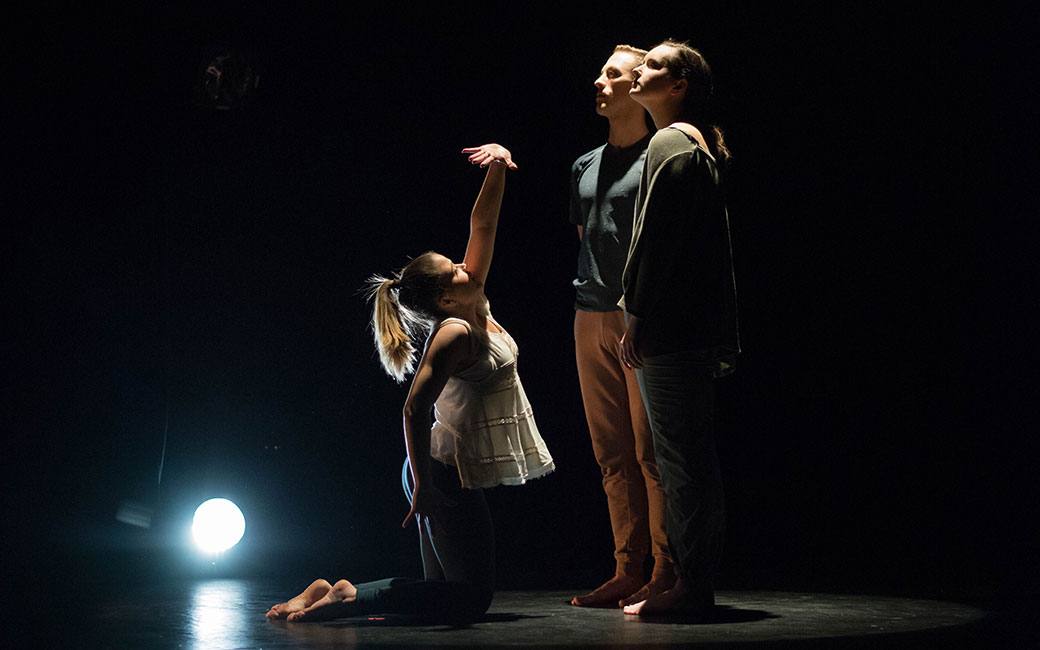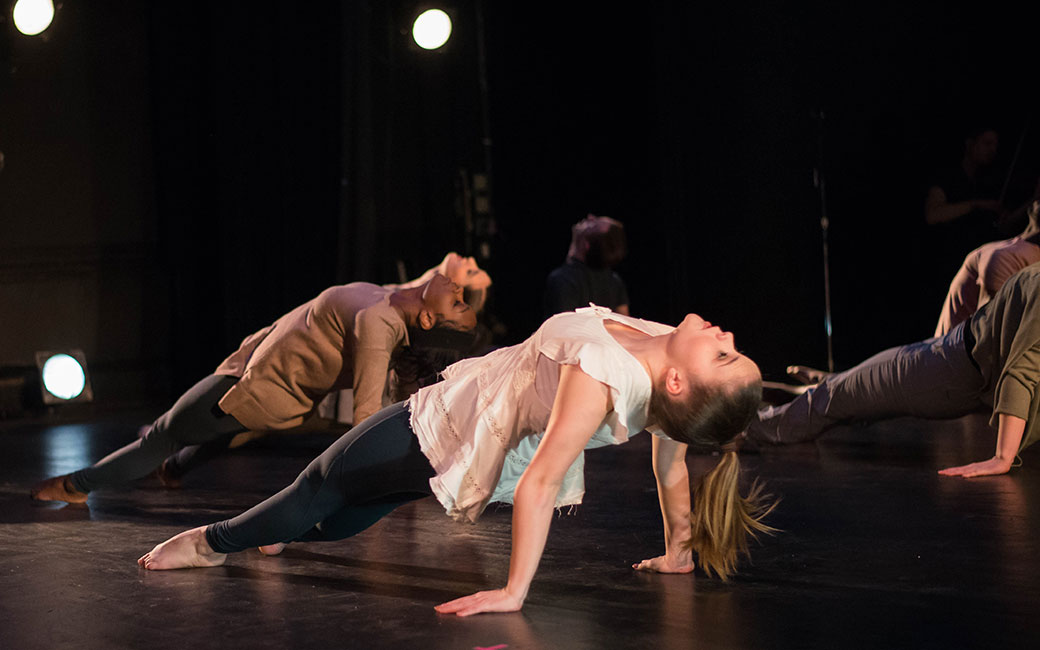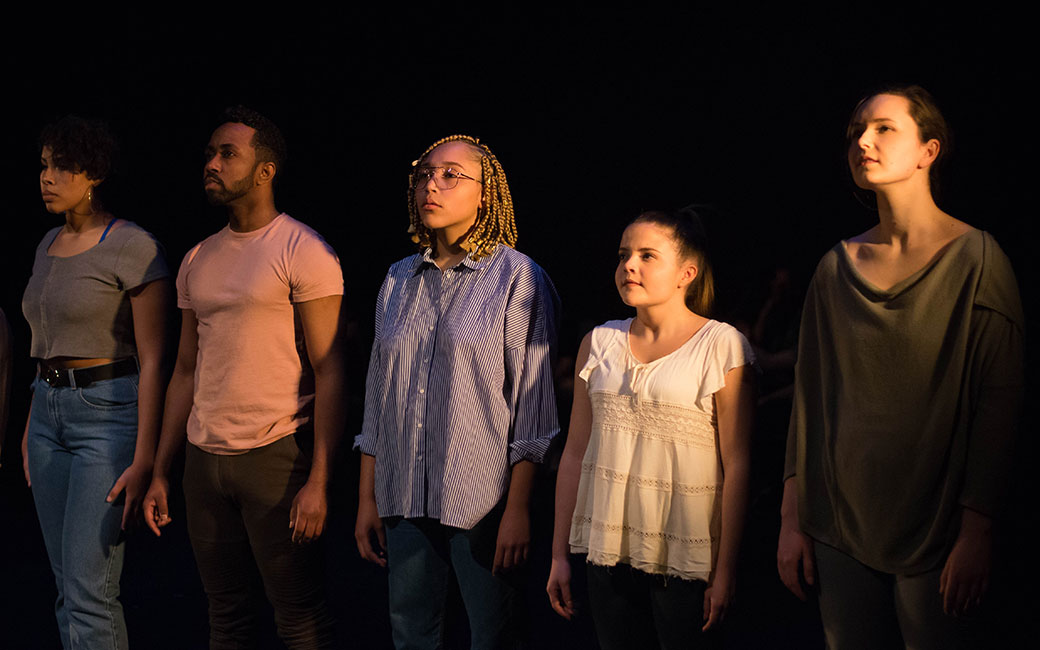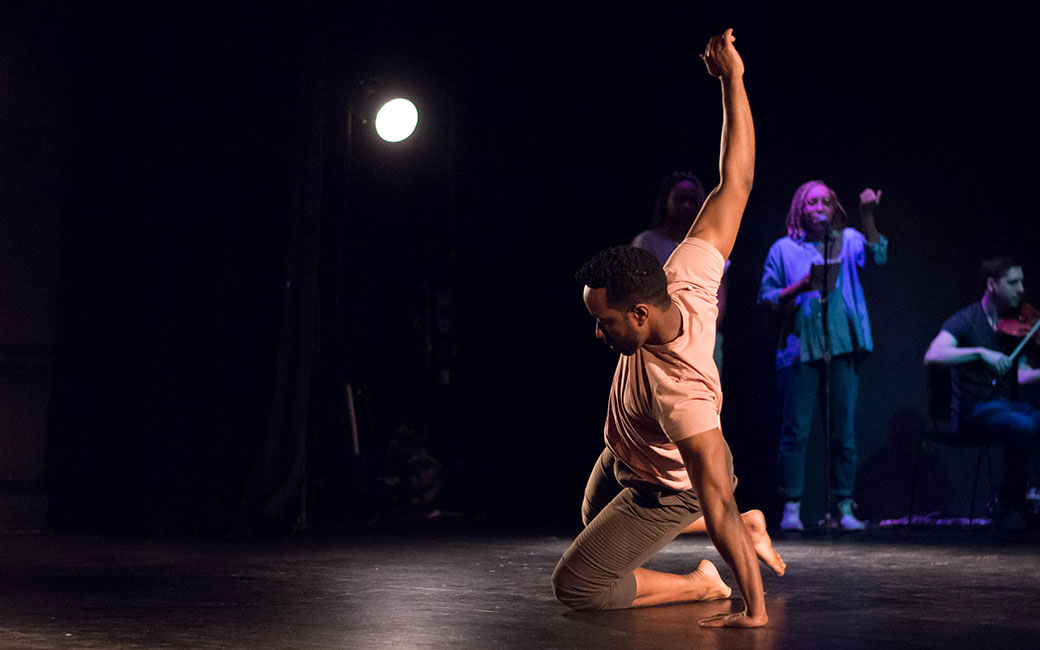
Student Research Impact Award recipient is changing the world through dance
Madeline Maxine Gorman ’19 combines art and activism in ADDICT, a collaborative dance performance about addiction
By Wanda Haskel on July 8, 2019
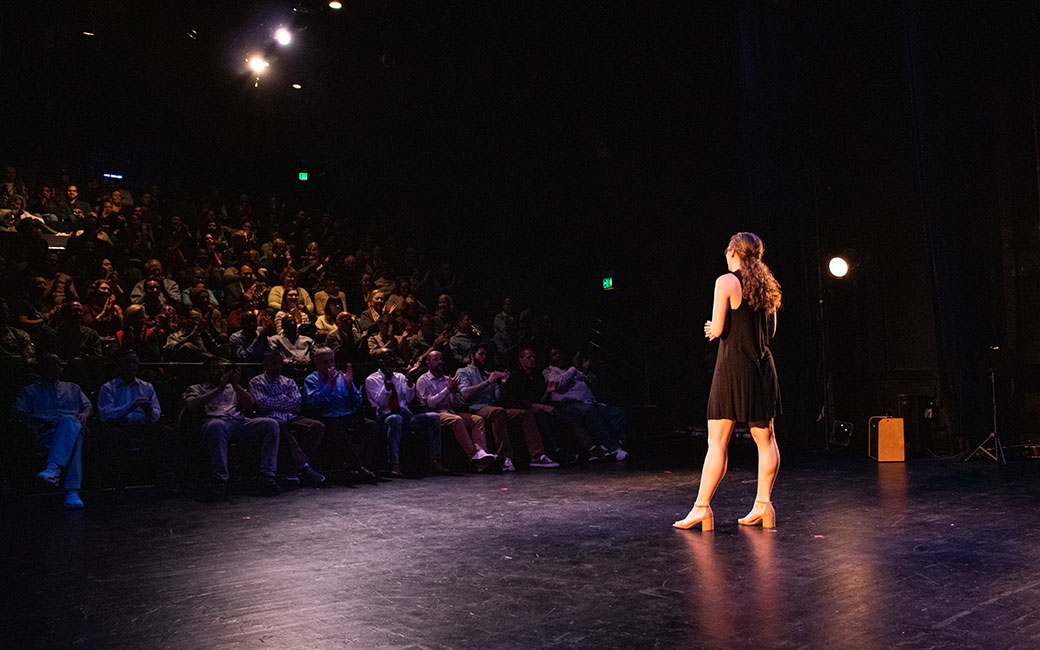
It’s a windy March night, and the Baltimore Theatre Project house is packed. On either side of the stage are a piano and a microphone. In between, a professional string quartet warms up.
Enter your host to introduce the program, a collaborative dance performance about addiction, with all ticket proceeds going to Baltimore’s Helping Up Mission. She’s confident, well-spoken and passionate, as is the powerful, multi-disciplinary piece that follows.
But this is no seasoned director or producer.
She’s Madeline Maxine Gorman ’19, an undergraduate student at Towson University, just weeks from graduation.
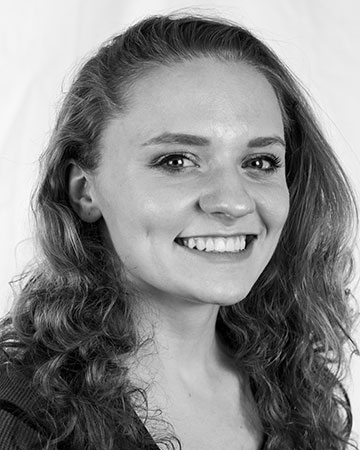
The ambitious project had been percolating in Gorman’s brain for a couple of years. Set against the backdrop of Maryland’s opioid crisis, her belief that art and activism make a powerful pair got Gorman thinking about how dance, supported by scholarly inquiry, could make a difference in a country where overdoses had become the leading cause of accidental death. Add influence from a TU writing for dance class, which developed her research skills, and an idea began to take shape.
Gorman refers to artists dedicated to social change as she explains her motivation and drive. “I’m not Alvin Ailey or Andy Warhol by ANY STRETCH,” she says, “but I have to try…This feels like something I need to do.”
It would take funding, though. So when the joint major in dance/mass communication found out about TU’s Undergraduate Research and Creative Inquiry Committee’s Research Impact Award, applying was a no-brainer.
A grant proposal, two rounds of cuts, and a nerve-racking presentation later, hers was the only application, out of the 11 chosen across the TU colleges, to come from the College of Fine Arts and Communication.
Gorman says when she found out she got the grant, she did three things. “First I cried. Then I called my mom. And then I told everyone else.”
After that, she got straight to work.
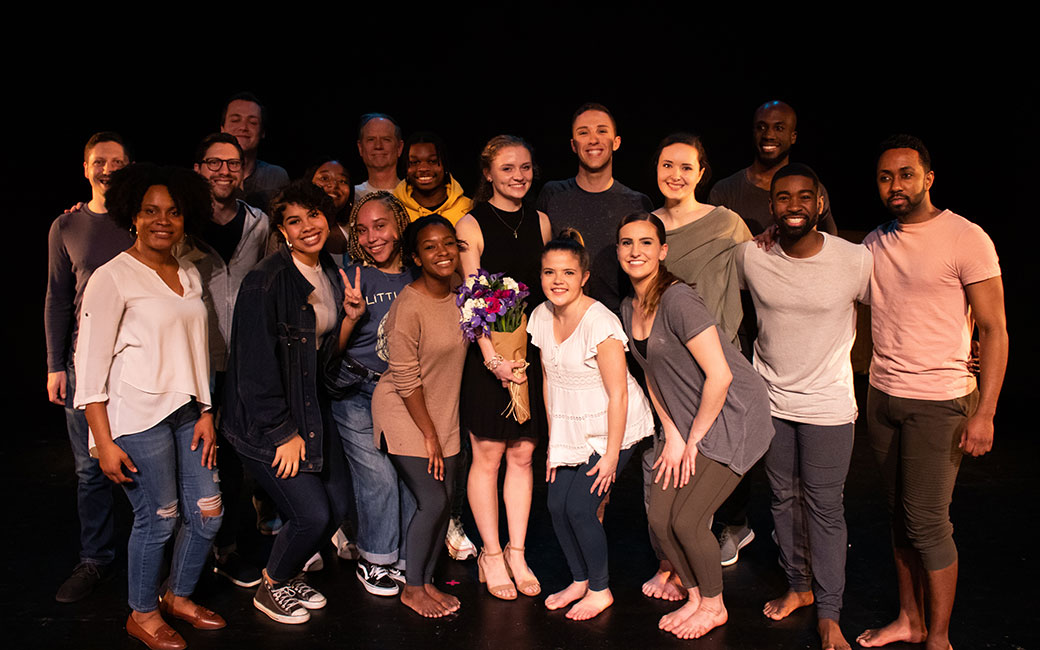
Scholarly pursuits
The research portion of the project turned into an independent study investigating perceptions of addiction in American mass media under Assistant Professor Hyang-Sook Kim (mass communication). With the guidance of her faculty-mentor, whom Gorman calls “amazing,” she developed a hypothesis around the idea that an anti-drug public service announcement featuring dance would be more effective at inspiring empathy for folks grappling with addiction than traditional approaches.
Next, she designed a study to test the hypothesis—an online survey with subjects randomly assigned to one of three versions of a PSA, followed by questions measuring their empathy levels.
And finally, the statistical data analysis, the findings of which Kim is helping Gorman submit to academic conferences.
Performance with purpose
Part two of the project puts Gorman’s research hypothesis into action in the form of a performance titled ADDICT she produced, directed and choreographed. The work features dancers portraying various addiction experiences, layered with live music and poetry read by the TU student-run VOICES Slam Poetry Team.
With seven dancers, ADDICT is divided into a series of vignettes. In one, we witness
the perspective of a student whose parents battle opioid misuse. Another expresses
the frustrations of a couple with one partner battling addiction while the other tries
to help.
Dance, argues Gorman, is especially effective for addressing such a painful topic.
“It shows us people not only doing something beautiful, but doing something so vulnerable.”
Dance produces a very different response, she adds, from, say, reading rates of overdose
deaths. “It puts us in the place of that struggle.”
“ As much as I believe art can inspire social change, I also like when art can have concrete effects on the world. ”
Pulling together the evening-length work had Gorman dancing her way through many facets of creative and administrative leadership. She raised additional money to ensure she could pay the talent (and her research study participants), held auditions and hired musicians, choreographed and directed. She connected with partners like the Baltimore Theatre Project and Helping Up Mission, and marketed the performance. On balance, the 20-year-old acquired experience that, along with the four internships she completed in her time at TU, will surely increase her chances of landing one of the jobs in arts administration for which she is now applying.
“It was a lot of research,” says Gorman, “and taking that initiative to reach out
to people.”
She also got good at asking for help and found faculty, friends and family willing
to contribute time and expertise, and even open their wallets to assist her in realizing
her dream.
“There has been a huge amount of support from the university for this project,” she
says.
That includes—besides the $1,000 Research Impact Award—donations from professors she’s
never even met and consultations with dance faculty who gave input on the choreography.
Plus, three of the show’s dancers were fellow majors from the TU dance department.
Happy to help
Not to downplay the importance of the other two portions of the project, Gorman calls its philanthropy aspect, “the really special part.”
“As much as I believe art can inspire social change,” says the Eastern Shore native, “I also like when art can have concrete effects on the world.”
So, after researching the nonprofit scene in Baltimore, she decided to partner with Helping Up Mission, which supports people in the city experiencing homelessness, poverty and addiction. Ticket sales, which totaled over $4,000, went toward Helping Up’s very concrete campaign to build a homeless shelter specifically for women and children affected by addiction. Plus, ADDICT audiences were treated to an opening performance by the Helping Up Mission Choir, which had many attendees pulling out their tissues. Additionally, the poetry read during the performance was written by men in the charity’s addiction recovery program as part of their recovery process.
Gorman is thrilled and grateful for the opportunity to design and execute her three-pronged endeavor. The 2019 COFAC commencement speaker’s ultimate goal is to head her own dance company, but her last semester of college was spent doing what she loves, “making work, choreographing, putting together a performance, and helping people,” which was her in-this-moment goal.
“This,” she adds with a gigantic smile, “is the dream.”
This story is one of several related to President Kim Schatzel’s priorities for Towson University: Culture of Philanthropy.
